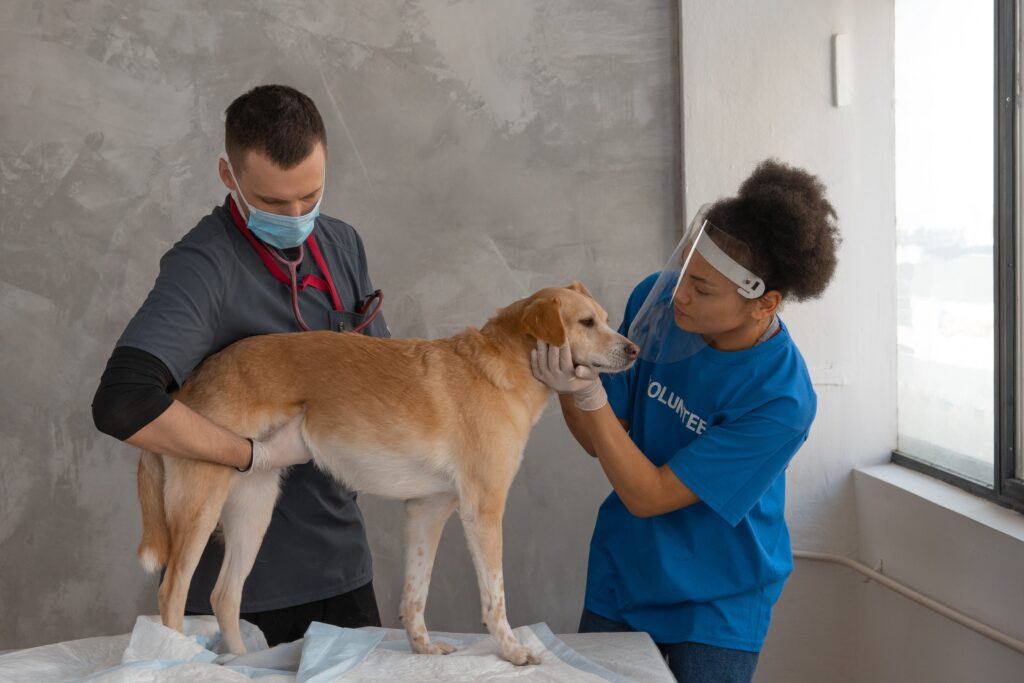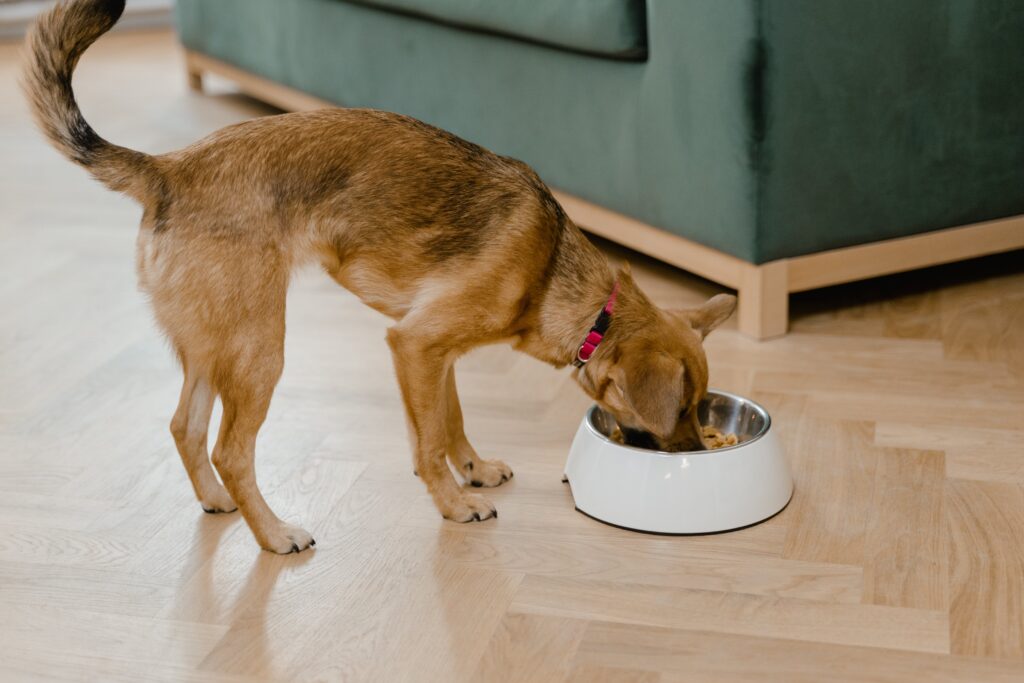Protein and energy requirements for dogs
Dogs’ requirements for calories and protein might vary based on a number of factors, including age, activity level, and overall health. These are only suggestions; every dog is different and may have different needs. Consultation with your veterinarian is vital to determining your dog’s individual needs. Having said that, the following are some standard suggestions.:
1) Protein requirements:
Puppies:
- Puppies are at a vital growth phase, and protein is required for muscle, tissue, and organ formation.
- Foods for puppies often have greater protein content, typically between 22% and 32%. Seek out high-quality sources of animal protein, such as fish, poultry, or beef.
- For optimum growth, essential amino acids are essential, and a puppy meal that is well-balanced must provide these in sufficient proportions

Adult dogs
- Adult dogs need protein to stay healthy generally, to retain their muscular mass, and to support their immune systems.
- For adult dog food, the required protein concentration usually falls between 18% and 25%. For a diet to be considered complete, the choice of protein source is still essential.
- Dog breeds that are more active, such working or athletic breeds, could benefit from diets that are richer in protein.
Aging dogs
- Senior dogs still need high-quality protein to support the upkeep of their muscles and other body processes, even if their needs may not be as great as those of pups.
- Protein content in senior dog diets is typically between 18% and 25%, which is comparable to that of adult dog foods.
- To help ageing dogs, several senior-specific recipes may also include antioxidants and joint supplements.
Specific health issues
Dogs with particular medical issues could require different kinds of proteins. Dogs suffering from kidney illness, for instance, might need to limit their protein intake, but dogs with food allergies might gain from trying new protein sources.
2) Energy requirements:
Puppies
- Because of their high energy levels and quick growth, puppies require more calories than older dogs do.
- Depending on the brand and formulation, puppy feeds can include 350–500 kcal of calories per cup.
Adult dogs
- Adult dogs’ energy requirements vary by their size, amount of activity, and metabolism.
- Dog meals for adults typically contain 250–400 kcal per cup. Dogs who work or are active breeds could need a diet greater in calories.
Aging dogs
- Senior dogs may need to modify their calorie intake to avoid weight gain because they may have a slower metabolism and be less active.
- The average cup of senior dog food is 250–350 calories.
Weight management
- Dogs that require weight control may be fed a lower-fat, calorie-restricted diet.
- Dog meals formulated to help with weight reduction may include 200–300 kcal per cup.

Specific health issue
Diets specifically designed for dogs with medical issues may be necessary. Veterinarians frequently prescribe prescription diets that meet certain dietary requirements while treating underlying medical conditions.
Conclusion
Keep in mind that these are general guidelines; specific needs may apply to different dogs. Consistently going to the doctor and talking to your veterinarian about your dog’s individual needs are essential to keeping them in good health for the rest of their lives.

